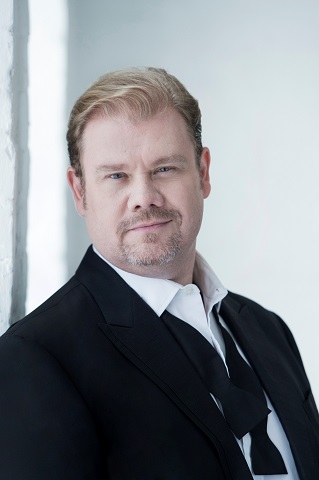 United Kingdom Mozart, Mahler: Dame Mitsuko Uchida (piano), Dame Sarah Connolly (mezzo-soprano), Stuart Skelton (tenor), London Philharmonic Orchestra / Vladimir Jurowski (conductor). Royal Festival Hall, London, 29.9.2018 (CC)
United Kingdom Mozart, Mahler: Dame Mitsuko Uchida (piano), Dame Sarah Connolly (mezzo-soprano), Stuart Skelton (tenor), London Philharmonic Orchestra / Vladimir Jurowski (conductor). Royal Festival Hall, London, 29.9.2018 (CC)

Mozart – Piano Concerto No. 27 in B flat, K595
Mahler – Das Lied von der Erde
This programme offered a great coupling of two late works by two great masters. It was a particular joy to hear Uchida on her home territory of Mozart in that composer’s serene last concerto for the piano. Reminding us that she is incapable of an ugly sound or badly-turned phrase, Uchida was completely inside the music. Added magic came from the orchestra; Jurowski is a fabulous accompanist; the pin-point accuracy of his minimal stick movements was notable.
Antiphonal violins and a reduced orchestra (three double-basses) made for a clean sound; cleanliness was a characteristic of the first violin lines, too, which were preternaturally together. Altogether, this was one of the most exquisite orchestral expositions of a Mozart piano concerto one can imagine, its profile of textural clarity and grace perfectly matched to Uchida’s aesthetic. Uchida’s contribution was tender and always pristine, while, aptly for this final concerto, everything unfolded beautifully naturally, with no sense of rushing. Special mention to the oboe (Ian Hardwick) and bassoon (the wonderfully reedy Jonathan Davies); and, it was only in retrospect that one noticed Jurowski’s near-telepathic responses.
The central Larghetto emerged as fragile, beautifully ornamented and florid in its later section, while the finale was bright and serene with a beautifully co-ordinated piano/flute (Juliette Bausor) dialogue and a superbly off-the-cuff cadenza. We were treated to an encore, too: the Andante cantabile from Mozart’s Piano Sonata in C, K330, as magical as one might expect.
Mahler’s Das Lied von der Erde doesn’t come along every day, for very good reasons, not least of which are the demands made on the tenor, particularly in the first movement, not to mention a mezzo (or baritone) who can deliver in that half-hour last movement. Both criteria were met to staggeringly high standards here. Stuart Skelton, eschewing printed music, has all the power required for ‘Das Trinklied vom Jammer der Erde’ (‘The Drinking Song of the Sorrow of the Earth’), his open-throated sound un-cowed by the orchestral heft. It is so easy for soloists to be drowned in this movement – not here, thanks also to Jurowski’s trademark attention to detail, particularly as regards Mahler’s counterpoint. The opening of ‘Von der Jugend’ (‘From Youth’), so often strained from the soloist, was grace itself. Skelton’s final contribution, ‘Der Trunkene im Frühling’ (‘The Drunkard in Spring’), was taken at quite a lick by Jurowski, but he left space for a magnificently eloquent moment of clarity and near-awakening to the beauty of life from the protagonist at the moment the bird sings. Incidentally, Skelton held his final A natural to the very end of the movement (the Universal Edition score gives only one bar).
Dame Sarah Connolly, who was the soloist for the LPO’s recording of this work on their own label (with Nézet-Séguin and Toby Spence), was simply magnificent. Jurowski’s attention to detail in her first song, ‘Der Einsame in Herbst’ (‘Autumn Loneliness’) was notable, particularly the passages marked ohne Ausdruck. Here, Connolly conveyed a miraculous sense of wonder at the orientalised beauty in Nature (‘one would have thought an artist had strewn jade-dust over the delicate blossoms’, goes the text). Connolly responded to Jurowski’s transparent strings in ‘Von der Schönheit’ (‘Beauty’) with heart-breaking understanding of the text, painting the initial idyll tenderly before palpably conveying the young girl’s heartbreak as her eyes follow the young man on horseback.
Finally, the great ‘Farewell’ (‘Der Abschied’). This was a brilliantly emotionally involving account, Connolly’s vocal sound was beautiful with a glint at times that captured the full emotionalism. Her cry of ‘Wo bleibst du?’ (Where are you?) was a real cry of pain. Jurowski’s structural reading was again defined by its detail (the mandolin and celesta at the close perfectly balanced, for example); surprisingly, perhaps the brass was slightly underpowered at the climax of the dark orchestra-only ‘march’. Yet how glowing a sound he conjured from the LPO at ‘Die liebe Erde allüberall blüht auf im Lenz’ (Everywhere the lovely earth blossoms forth in spring).
A terrific performance from all, unforgettable in many respects.
Colin Clarke